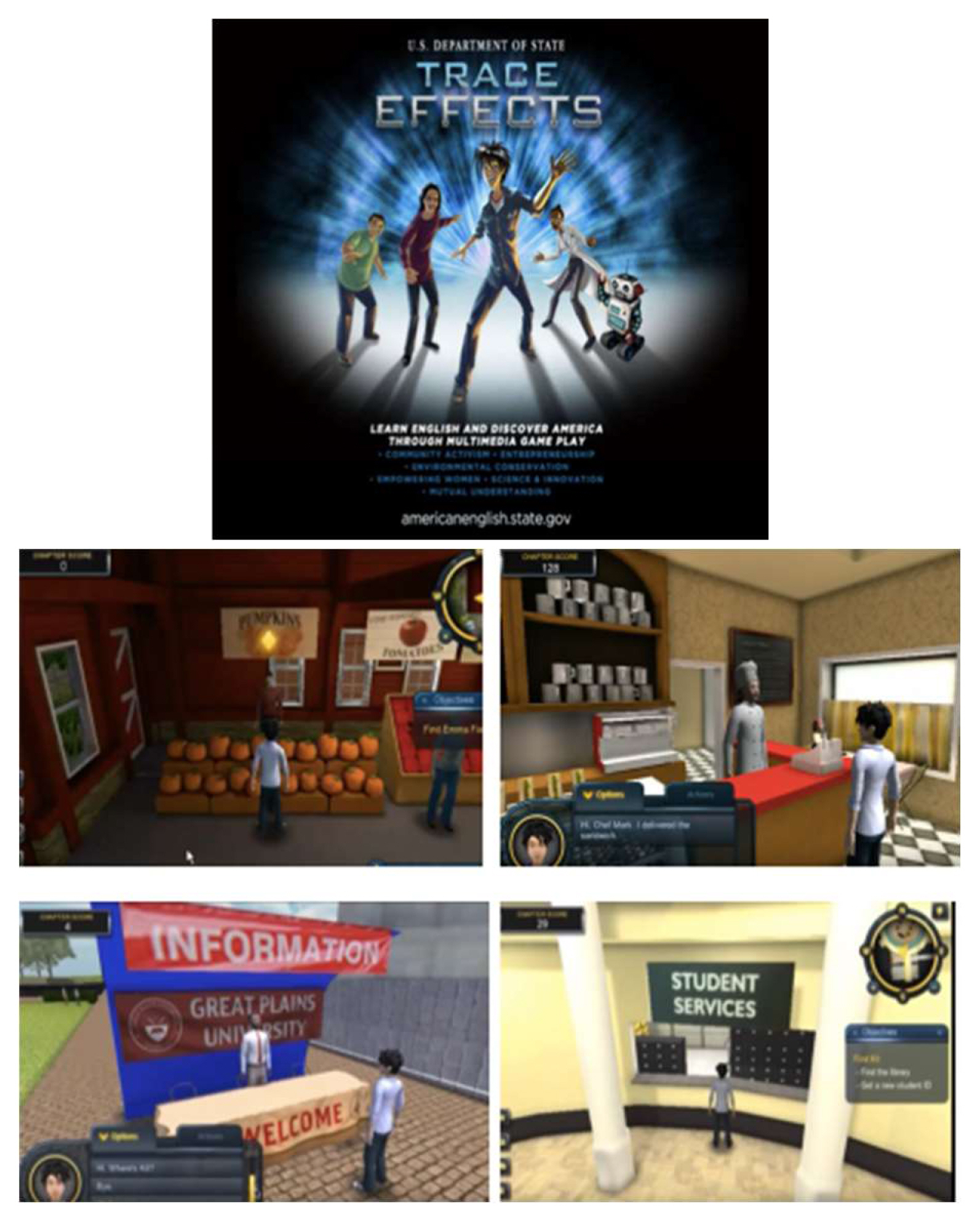Abt, CC (1977). Serious games: The art and science of games that simulate life in industry, government and education. New York, NY:Viking Press.
Allen, LK, Crossley, SA, Snow, EL, & McNamara, DS (2014). L2 writing practice: Game enjoyment as a key to engagement.
Language Learning & Technology,
18(2), 124-150.
https://doi.org/10125/44373.

Baek, Y, & Kim, H (2005). An analysis of the key factors in flow and game play intention of educational online games.
Journal of Educational Technology,
21(3), 1-32.
https://doi.org/10.17232/KSET.21.3.1.

Dewey, J (1938). Experience and education. New York, NY:Simon & Schuster.
Godwin-Jones, R (2014). Games in language learning: Opportunities and challenges.
Language Learning & Technology,
18(2), 9-19.
https://doi.org/10125/44363.

Im, H (2019). A study on the application of VR in the general English classes. Korean Journal of General Education, 13(5), 349-369.
Kim, HT, Park, MK, & Choi, YS (2011). Game-based content development for learning principles of prime numbers. Journal of KIISE: Computing Practices and Letters, 17(12), 672-676.
Kim, YM, Kim, JH, Lee, KH, & Bang, YK (2016). Development of virtual reality-based edutainment contents for children’s English education.
Indian Journal of Science and Technology,
9(26), 1-7.
https://doi.org/10.17485/ijst/2016/v9i26/97411.

Kolb, DA (1984). Experiential learning: Experience as the source of learning and development. Englewood Cliffs, NJ:Prentice Hall.
Lan, YJ (2020). Immersion, interaction and experience-oriented learning: Bringing virtual reality into FL learning.
Language Learning & Technology,
24(1), 1-15.
http://doi.org/10125/44704.

Lee, GY, & Kim, HJ (2020). The effects of virtual reality based English learning on vocabulary achievements and affective domains of elementary students.
Journal of Learner-Centered Curriculum and Instruction,
20(16), 1213-1235.
http://doi.org/10.22251/jlcci.2020.20.16.1213.

Meyer, B (2013). Game-based language learning for pre-school children: A design perspective. The Electronic Journal of E-Learning, 11(1), 39-48.
Miller, M, & Hegelheimer, V (2006). The SIMs meet ESL: Incorporating authentic computer simulation games into the language classroom.
Interactive Technology and Smart Education,
3(4), 311-328.
https://doi.org/10.1108/17415650680000070.

Paeng, HS (2009). Development of e-learning contents with the foundations of VR (Unpublished master’s thesis) Kookmin University, Seoul.
Park, J, & Shin, S (2014). Effects of the smart-phone game types on vocabulary learning and the attitude of Korean college students.
Foreign Language Education,
21(4), 149-172.
http://doi.org/10.15334/FLE.2014.21.4.149.

Park, MJ, & Lee, BJ (2004). The features of VR (virtual reality) communication and the aspects of its experience.
Journal of Communication Research,
41(1), 29-60.
https://doi.org/10371/1982.

Ranalli, J (2008). Learning English with
The Sims: Exploiting authentic computer simulation games for L2 learning.
Computer Assisted Language Learning,
21(5), 441-455.
https://doi.org/10.1080/09588220802447859.

Son, S (2018). Effects of using mobile-based vocabulary game activities on Korean middle school students’ vocabulary learning and attitudes.
Multimedia-Assisted Language Learning,
21(2), 104-133.
https://doi.org/10.15702/mall.2018.21.2.104.

Wang, YF, Petrina, S, & Feng, F (2017). VILLAGE-Virtual immersive language learning and gaming environment: Immersion and presence.
British Journal of Educational Technology,
48(2), 431-450.
https://doi.org/10.1111/bjet.12388.





 PDF Links
PDF Links PubReader
PubReader ePub Link
ePub Link Full text via DOI
Full text via DOI Download Citation
Download Citation Print
Print






